Watering Daisies: How Often To Water Your Sun Loving Blooms
While it might seem straightforward, there is a knack to watering daisies correctly. We show you how to give your shastas, marguerites and gerberas the best hydration
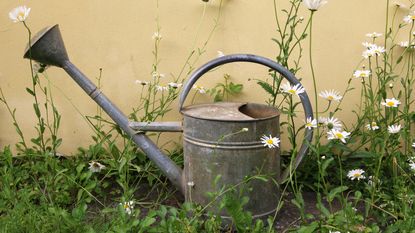

The term ‘daisy’ is commonly used to refer to many ornamental flower species. So watering daisies is something most gardeners will need to perfect at some point. Typically, these plants produce flowers consisting of a center disk, surrounded by a ray of petals. Daisies are considered to be carefree, making them ideal candidates for most gardens.
Learning to properly water various species of daisies is of special importance, and plays a key role in the flowers’ ability to thrive. But how much water do daisies actually need?
Which Daisies Need the Most Watering?
A daisy’s water requirements can vary greatly from one garden to the next. Factors such as temperature, rainfall and soil quality can greatly influence the plants’ need for water. While many types of daisy can survive solely on rainfall, others may need more consistent watering in order to grow and flower well.
Many long-lived perennials, or those daisies commonly identified as wildflowers, are well-adapted to a wide range of growing conditions. This includes a unique ability to withstand brief periods without water and drought. These hardy daisy types include blackfoot daisies, Marguerite daisies and Shasta daisies.
Highly ornamental varieties such as gerberas may have more specific needs. Ample water is necessary to maintain vigor and ensure the quality of each bloom. This is of special importance within the landscape and in cut flower production. So knowing how often to water daisies will depend a little on which kind you are growing.
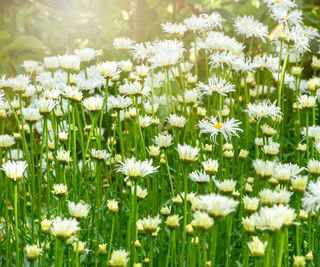
Watering Daisies in Open Ground
Determining daisy water requirements can be puzzling. First, gardeners should consider the needs of each particular species. Accounting for the conditions within your garden is also important, like taking note of the average temperatures and rainfall totals throughout the season. Other key aspects of flower beds to observe include your soil’s composition and drainage.
Approximately 1in (2.5cm) of water each week is considered adequate for most daisy plants. Though the plants appreciate consistent moisture, take care to avoid oversaturation. Watering daisies from below using drip irrigation or soaker hoses is most effective. Proper watering techniques help prevent disease and more effectively deliver moisture to the plants’ root zone. Be careful to avoid consistent wetting of the foliage or overwatering, as both may result in the decline of plants.
Gardening tips, videos, info and more delivered right to your inbox!
Sign up for the Gardening Know How newsletter today and receive a free download of our most popular eBook "How to Grow Delicious Tomatoes."
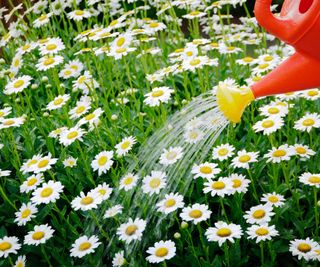
Watering Daisies in Containers
For anyone asking ‘how much water do daisies need?’ there is another element to consider – whether you are growing your plants in containers. Like other flowers grown in containers, daisies that have been planted in pots require daily monitoring. This is especially true where conditions are warm in container garden arrangements, causing soils to dry much more quickly.
Watering daisies in pots will most likely be needed every one or two days, depending upon the weather. Gardeners should aim to keep potting soil consistently moist, watering each plant before the growing medium has dried completely.
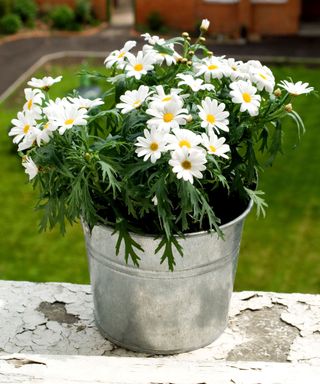
Watering Daisies in Winter
Daisy plants only seldom require water in winter. During dormancy, most species are more susceptible to diseases related to excess moisture. Be certain that you only plant daisy species in beds that drain well. Saturated soils and cooler temperatures will often result in damage to plants or the development of rot.
If you live in a region with mild or exceptionally dry winter conditions, you can water daisies in winter, but do so only sparingly.
Frequently Asked Questions
Is Dry Soil Always Bad for Daisies?
Daisies will grow best in soil that remains consistently moist. However, many varieties are well-adapted to a much broader range of soil conditions. This includes those that dry quickly or have poor fertility. Tolerance to drought also plays a role in the plant’s ability to better withstand brief periods without water.
How Do You Know if Daisies are Overwatered?
Overwatering is often a common problem for many gardeners. So a little caution is needed when watering daisies. Waterlogged soils or those that drain poorly are most likely to affect daisies. Too much water may cause plants to begin yellowing, with more severe cases resulting in the development of rot. Signs of rot include sudden wilting or drooping, followed by complete collapse of the plant.

Tonya Barnett has been gardening for 13 years. Flowers are her passion. She has trasformed her backyard into a cut flower garden, which she regularly chronicles on her YouTube channel http://www.youtube.com/@tonyawiththeflowers.
-
 Urban Composting Guide: How To Compost In The Middle Of The City
Urban Composting Guide: How To Compost In The Middle Of The CityUrban composting does not have to be daunting. You can compost in the city, and maybe even try some urban worm composting!
By Mary Ellen Ellis
-
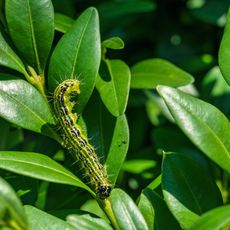 Shrub Diseases And Pests To Watch Out For
Shrub Diseases And Pests To Watch Out ForShrub diseases and pests can be challenging. Learn how to recognize and eradicate them before they can present a danger to your plants.
By Susan Albert
-
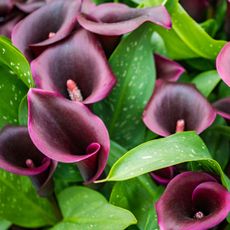 Best Moody Maroon Flowers: 8 Burgundy Blooms For A Moody Garden
Best Moody Maroon Flowers: 8 Burgundy Blooms For A Moody GardenGrowing maroon flowers may not be for the faint of heart, but it is a glorious way to add drama and impact – as well as lure pollinators to your plot. So why not go dark with these eight blooms?
By Tonya Barnett
-
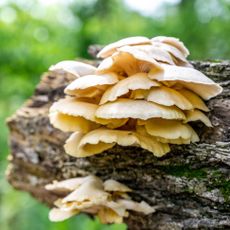 Growing Mushrooms On Logs: 5 Best Mushroom Varieties To Try
Growing Mushrooms On Logs: 5 Best Mushroom Varieties To TryYou’ll find growing mushrooms on logs is simple, enjoyable, safe and tasty – as long as you pick the right kinds! We reveal five of the best for an endless feast of fungi
By Janey Goulding
-
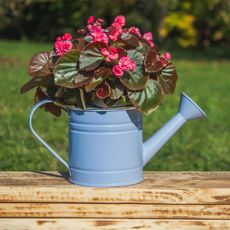 Begonia Watering: How To Water Begonias (And When To Leave Them Alone!)
Begonia Watering: How To Water Begonias (And When To Leave Them Alone!)Improving the way you hydrate your begonias can have a major impact on their life expectancy and flowering quality. We explain how to get better at begonia watering
By Tonya Barnett
-
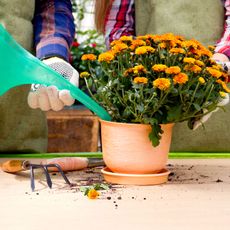 How Often To Water Your Mums For Beautiful, Long-Lasting Blooms
How Often To Water Your Mums For Beautiful, Long-Lasting BloomsWatering chrysanthemums relies in part on whether your plants are in the garden or in a pot, but there is a knack to doing it well. We show you how often to water your mums for the best blooms
By Tonya Barnett
-
 Romantic Rose Varieties To Make Your Heart Flutter: 8 Best Roses For Romance
Romantic Rose Varieties To Make Your Heart Flutter: 8 Best Roses For RomanceRomantic rose varieties are plentiful – but if you are looking for a few of the ultimate selections for love, here are eight of the best rose cultivars you can try
By Tonya Barnett
-
 French Flowers To Add A Touch Of Romance To Any Garden
French Flowers To Add A Touch Of Romance To Any GardenFeeling love-struck is something that French flower enthusiasts have elevated to the level of an art form. Here we consider the most romantic French flowers you can grow
By Bonnie L. Grant
-
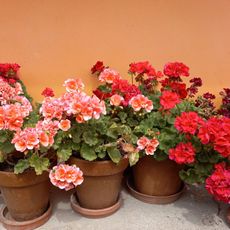 Growing Geraniums In Containers For More Blooms In Small Spaces
Growing Geraniums In Containers For More Blooms In Small SpacesNo matter how small your yard or window space, there’s a place for a potted geranium. Make sure yours last for longer with this guide to growing geraniums in containers
By Janey Goulding
-
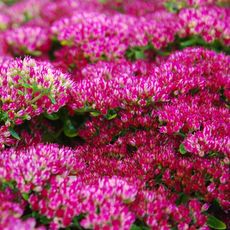 10 Types of Sedum: Best Stonecrop Varieties For Sustainable Gardens
10 Types of Sedum: Best Stonecrop Varieties For Sustainable GardensFew plants work harder, more efficiently or quite so creatively as stonecrops. Discover the best types of sedum for beautiful and sustainable gardening projects
By Janey Goulding